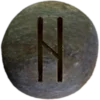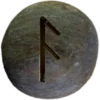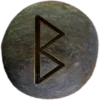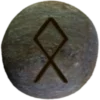Last Updated on February 19, 2025
Table of Contents


Vetrnætr (VET-ur-nyte-er) marked the shift from summer to winter in ancient Norse culture. This significant time honored gods, ancestors, and spirits. People also called it Winter Nights or Winter Finding. It aligned with the agricultural cycle, signaling the end of harvest and the need for winter preparations.
The Ynglinga Saga mentions great feasts during this time, celebrating both gods and departed kin. The Víga-Glúms saga also references sacrifices made at Winter Nights. These texts highlight the importance of securing divine favor for the harsh months ahead. ![]()
Communities gathered for Vetrnætr with feasting, toasts, and offerings. Families honored their dísir (DEE-seer), powerful female spirits who watched over their kin. They also sought protection from the álfar (AHL-fahr), ancestral spirits sometimes linked to elves. People believed these beings could bless or curse a household.
Sacrifices ensured prosperity and survival. Some sources suggest that blood offerings, called blóts (BLOHTS), played a role. Livestock, food, and drink were also given to the gods and spirits. Every act reinforced the bond between the living and the unseen forces guiding their fate.
Weather played a crucial role in this celebration. A harsh winter could mean starvation or death. People sought omens, watching the skies and the land for signs. The Hervarar saga ok Heiðreks speaks of wise seers interpreting such portents, revealing what winter would bring.
Vetrnætr also served as a time for oaths. Warriors, chieftains, and farmers swore promises for the coming year. Honor bound them to fulfill their words, knowing that breaking an oath could bring misfortune.
Even after Christian influence spread, echoes of Vetrnætr remained. Folk traditions involving spirits and winter feasts persisted. The deep connection between family, fate, and the changing seasons endured across generations.
Two Elder Futhark Runes Associated with Vetrnætr
Hagalaz (ᚺ): The Harshness of Winter
Hagalaz (HAH-gah-lahz) represents hail, destruction, and sudden change. It reflects the unpredictable nature of winter, bringing both hardship and renewal. Just as hail shatters crops, winter’s arrival forces transformation. Hagalaz reminds people to prepare, endure, and find strength in adversity. It teaches resilience in the face of life’s storms.
Ansuz (ᚨ): The Voice of the Spirits
Ansuz (AHN-sooz) symbolizes wisdom, communication, and divine messages. At Vetrnætr, people sought omens from the gods, spirits, and ancestors. This rune connects to spoken oaths, sacred rituals, and guidance from the unseen. It reminds people to listen, interpret signs, and honor the wisdom passed through generations. ![]()
Its Importance in Asatru
Vetrnætr holds deep meaning for Asatruar, marking a sacred time of transition, honor, and preparation. The changing seasons remind them of life’s cycles, where endings bring new beginnings. Strength, resilience, and connection define this celebration.
Honoring ancestors and spirits remains central. Asatruar recognize the presence of dísir and álfar, seeking their blessings for protection and prosperity. The veil between worlds feels thinner, making this the perfect time for offerings and remembrance.
Oaths sworn at Vetrnætr carry great weight. Asatruar understand that spoken words shape fate. A broken promise weakens honor, while a kept oath strengthens one’s standing. They embrace the season’s challenges with determination, knowing winter tests both body and spirit. Vetrnætr connects past, present, and future, reminding Asatruar of their place in an unbroken line of kin.


